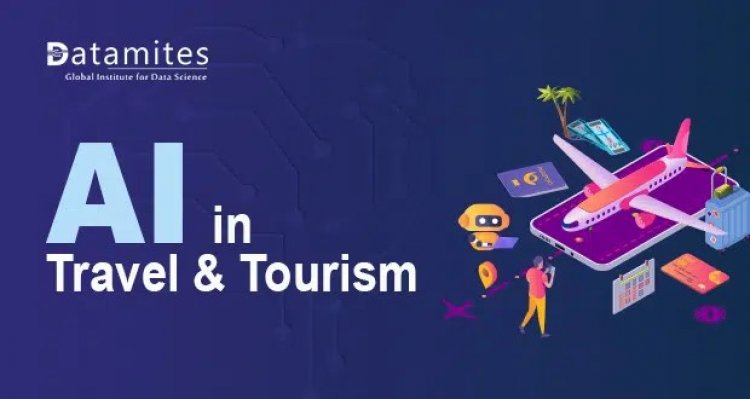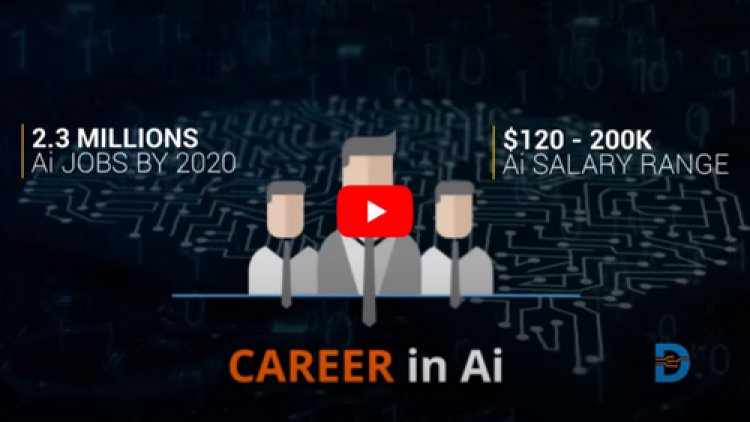Artificial Intelligence Perform on Travel and Tourism?
Artificial Intelligence is revolutionizing the travel and tourism industry by enhancing customer experiences, automating processes, and optimizing services. From personalized recommendations to smart chatbots, AI is transforming the way people plan and enjoy their trips.

Artificial Intelligence technology is one of the most revolutionary technologies in the new tech world, radically changing numerous industries all over the world.
Artificial intelligence is constantly expanding, making it more solid and enticing as a business tool. Businesses in the travel sector are using AI to automate several administrative and customer service duties.
Let’s have a look at AI use cases in the travel and tourism industry:
Travel Booking AI Assistants
Travellers no longer need to go to travel companies to book flights or look for lodging, owing to AI. Travel agents have been replaced by AI assistants and intelligent chatbots, allowing travellers to book flights, hotels, and car rentals online. These chatbots are used on social media platforms such as Facebook Messenger, Skype, WhatsApp, and Viber to provide a more personalized booking experience for users.
Customized Travel Planning
Travel companies are investing in artificial intelligence to ensure high-quality trip planning services. The companies also offer complementary services like food & drink, hospitality, etc., during their stay. As a result, Empowering travel agents to deliver better service, consequently, attracting more consumers. Customers can also use AI in travel to find new tourist spots, seek out new activities, and so on.
Facial recognition with more clout
Facial recognition technology has the potential to eliminate these time-consuming paper-based processes. Travellers using facial recognition may pass through airports, immigration, customs, and board planes without having to have their travel documentation inspected at each stage. Customers can use a simple facial scan to attend restaurants, duty-free retailers, or access entertainment when integrated with blockchain. To complete the transactions, blockchain technology ensures that reliable and trustworthy passenger data is made available.
The secret tide turner: Machine learning
Airlines and airports are increasingly emulating mega-retailers, selling everything from seats to blankets and hotel rooms. Machine Learning is quickly gaining traction as a covert persuader to aid with sales. Airlines can create recommendation engines that help customize offers based on products from their inventory and partner catalogues using big data and machine learning.
Using social media to discover public opinion
There are numerous social media listening technologies available. A subset designed exclusively for travel applications is of particular relevance to the travel industry. These programs analyze social sentiment and correlate it with the traveller’s journey, whether it’s before, during, or after the trip. Is a travel consumer dissatisfied because of a delayed flight or a less-than-ideal hotel room?
Data Preparation and Analysis
Furthermore, it’s worth noting that AI in travel and tourism industry isn’t confined to customer service. In reality, acquiring and evaluating data in order to make conclusions about customers, business operations, and pricing tactics is one of its most popular and productive uses.
Artificial intelligence’s main advantage in this industry is its capacity to sort through large amounts of data rapidly and precisely, whereas humans would take substantially longer and perhaps make more mistakes.
Productivity Gains
Artificial intelligence is being used by many travel agents to respond to inquiries immediately and automatically. Airlines, for example, use AI Chatbots to assist passengers in finding low-cost tickets. As a result, airlines can put their staff to work on other novel activities that require human participation.
Management of a brand
When a user wants to learn more about a firm, they will go online and read reviews about it. Customer reviews on the internet are always important in building a brand’s reputation. Negative feedback can be detrimental to the brand.
In the travel industry, artificial intelligence aids corporations in monitoring customer evaluations and comments on social media platforms. It enables firms to automatically track their brand’s position in the market.
Pricing that changes as time goes on
You may see a price increase if you search for a flight or hotel multiple times. As a result, buyers will not prefer to purchase tickets at significantly higher costs than usual. Dynamic pricing tools powered by AI can help you here. The technologies use predictive analytics to examine competitor prices faster and provide appropriate quotes. Such a thing exists.
Refer the article to know the Artificial Intelligence Certification Course Fee in 2022
Conclusion
The travel industry has always been on the cutting edge of technological adoption, particularly when it comes to digital technologies. Travellers have been similarly enthusiastic about embracing technological advancements that make travel more convenient and enjoyable. This has resulted in tremendous product and business model innovation, such as Airbnb and Uber.
Artificial intelligence’s ability to perform tasks that have traditionally required human cognitive function has made it particularly useful for those in the travel industry, as it can save time and money while presumably minimizing errors and letting tasks be done quickly and at any time of day!
According to the US Bureau of Labor Statistics, there will be more than 11.6 million employment openings in AI and analytics by 2026! Doesn’t this demonstrate how in-demand AI is in today’s world? DataMites AI Certification Training is the ideal choice for you if you want to master the AI domain.
DataMites Institute provides an industry-recognized Artificial Intelligence course accredited by global certifications. Through expert-led training and hands-on projects, it equips learners with advanced AI skills. Ranked among India’s Top 20 AI Institutes by Analytics India Magazine (AIM), DataMites guarantees high-quality education. Its comprehensive curriculum prepares professionals for successful AI careers worldwide.
DataMites is the leader in providing rigorous training in the most important subjects. We offer training in data science, python, machine learning, and tableau, to name a few. Check it out right now!
Check out the video – Artificial Intelligence Course Introduction.

 Thushara C.P
Thushara C.P 